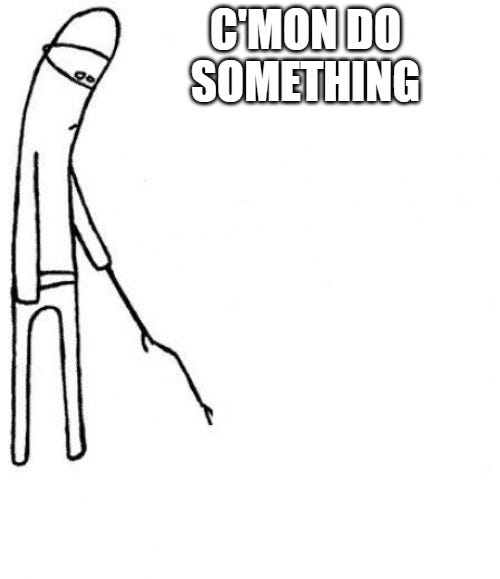The Best We Can Do? The Rise of Bullshit Research
It's time for a new enlightenment.

Do you feel it?
The sense that this civilisation has run out of creative juice.
That we’ve reached the cliff edge of the Enlightenment.
That big ideas are dead, killed off by the technocrats of the ruling class.
If an idea is proposed that doesn’t grow the economy, does it really exist as a thought?
This sense struck me hard recently reading BBC Focus, a popular science magazine. One of the articles was about a team of university researchers in California using AI to predict hit pop songs.
Professor Paul Zack said: “Streaming services can readily identify new songs that are likely to be hits for people’s playlists more efficiently, making the streaming services jobs easier and delighting listeners.”
There is so much of this going about. Click on any science tab at any of the big media outlets and there’ll be a story about a research "breakthrough" that crushes the soul. Here’s a ground-breaking study from the news today about how smiling makes you more attractive.
Dr Christian Valuch, who led the study from the University of Vienna, said: “People always had straight faces in Victorian photographs, and in the 1990s it again became fashionable for supermodels and celebrities not to smile if they wanted to appear cool. But these results suggest people look more attractive when they are smiling.”
Who knew? Thanks, Christian. Hope your PhD was worth it.
It doesn't matter whether we're talking about NPR or MSNBC anymore. They all run stories these stories now.
They cite "studies" that suggest people with depression and chronic illness are just lazy. They make declarations about public health and call up one hack doctor willing to lie for 15 minutes of fame.
Let’s call this bullshit research, the sibling of those bullshit jobs made famous by David Graeber.
We are being fed trivia and bullshit about delighting listeners and smiling while the ecological foundations of our world are being destroyed. What happened to the great sense of inquiry that I’ve read used to exist in the world? It wasn’t so long ago that people would spend years writing history-changing theses articulating political, economic, and social models to cast off subjugation and injustice, secure new material conditions and propel humanity forward.
This isn’t a reactionary lament for the good old days of the 18th century. It’s what scholars who study the Enlightenment themselves are saying. Earlier this year a group of professors and activists released a volume of works challenging universities and researchers to rethink their purpose.
Here's what they said:
“We believe the time has come for scholars across fields to reorient their work around the question of ‘ends’. If we want the university to remain a viable space for knowledge production, then scholars across disciplines must be able to identify the goal of their work – in part to advance the Enlightenment project of ‘useful knowledge’.….. Enlightenment thinkers combined practical and utopian definitions of ends as they called for new modes and institutions of knowledge production, understanding ends as large-scale goals that must, at the same time, be achievable.”
They questioned the current approach to academic research “in the context of the approaching climate apocalypse. What is the point of all this in the face of wildfires, superstorm, and megadrought?”
They were too polite to say it, but the gist of their critique was: stop focusing on bullshit research. Seize the spirit of the Enlightenment. Start focusing on big, transformative ideas before we lose everything.
And their call was for this work not just to fall on academics but for everyone to get involved, as happened in the 17th and 18th centuries.
During the Enlightenment, ordinary people formed ‘improvement societies.’ In coffee houses and bars these societies would meet and exchange radical, sweeping ideas about how to change their material conditions and move society forward. They discussed how to shift away from ideologies and institutions that kept reproducing the same dire outcomes: war, disease, impoverishment. These societies would draft lengthy treatises and theses and use these as the basis to agitate for deep change.
What do we have now that looks anything like that?
Book clubs?
Right now, despite having quite literally the longest period of history to look back on than any civilisation ever had, despite access to all the knowledge accrued over thousands of years and an unprecedented ability to communicate that knowledge, we’re too busy working bullshit jobs and conducting bullshit research for the elites. There's small enclaves of researchers working for the greater good. They get sidelined in favor of the sludge.
Whenever there's a real scientific breakthrough, corporations swoop in. They pick it apart and use it for profit.
Nobody benefits.
Rather than progress forward to new plains of meaning, we’re like that guy in the c’mon do something meme, poking listlessly at the ground with a stick, except it’s 8 billion of us collectively poking at our own brains, too busy with capitalism, too dispirited with the prospects for change.

But we know everything needs to change.
When people are asked, in large numbers, they say they don’t trust capitalism.
When asked, increasing numbers of people say they are losing faith in democracy to deliver decent outcomes.
When asked, people say they don’t expect a better future for themselves or their kids.
We know everything needs to change but we have no clue how to make it happen.
Maybe we need a new Enlightenment.
Like the philosophers, radicals, slaves, and horseshoe makers who two hundred years ago challenged the stagnant rule of monarchies, colonisers, and the Catholic church, we need new ideas, new forums for intellectual inquiry, and new political revolutions that challenge and oust old ideas and the old order.
And we have to believe this is possible.
The average person in 18th-century Europe could never have imagined a world where monarchies and the church didn’t strictly control most aspects of life.
Like then, the establishment now wants us to believe we’re at the end of history. That a world of globalised capitalism, pandemics, bloated militaries, forever war and climate chaos is just the natural product of the passage of time. An evolutionary inevitability.
They want us to believe that this is what it means to be human.
But this is a trap. We can’t believe that this world, these institutions, these economic structures, these rulers, these political configurations and these outcomes are the best we can do.
We have to believe that the end of hierarchical rule, of poverty, of inequality, of racism of war is possible. We have to imagine a guaranteed right to life, to food, housing, education, to health care, to a healthy environment. To a habitable planet.
Even if we never get there, we have to imagine it. We have to work for it. In the famous words of Antonio Gramsci: ‘Pessimism of the spirit, optimism of the will.”
Everything ends. Every supposedly great power. Every empire. Every civilisation.
Our political and economic realities will one day end. Maybe for the worse. But maybe for the better!
We have to believe that, because always believing the worst is to internalise the grim logic of those who proclaim forever capitalism, forever war and forever pandemic is simply the inevitable consequence of a lumpen ‘humanity.’
No.
Our experience as a species arrives in the form of outputs within this thing we call society. But the outputs are contingent upon the inputs. And if history tells us anything it’s that we know we can change the inputs.
Change is the constant.
Drop a person from 18th century Paris into 21st century Paris and they would barely recognise their surroundings.
But while much has changed, in its outlines, its hierarchies, its war, its rich and its poor, the world would still be strikingly familiar.
Maybe then we don’t need a new Enlightenment.
Maybe what we actually need to do is fulfill the promise of the original.








